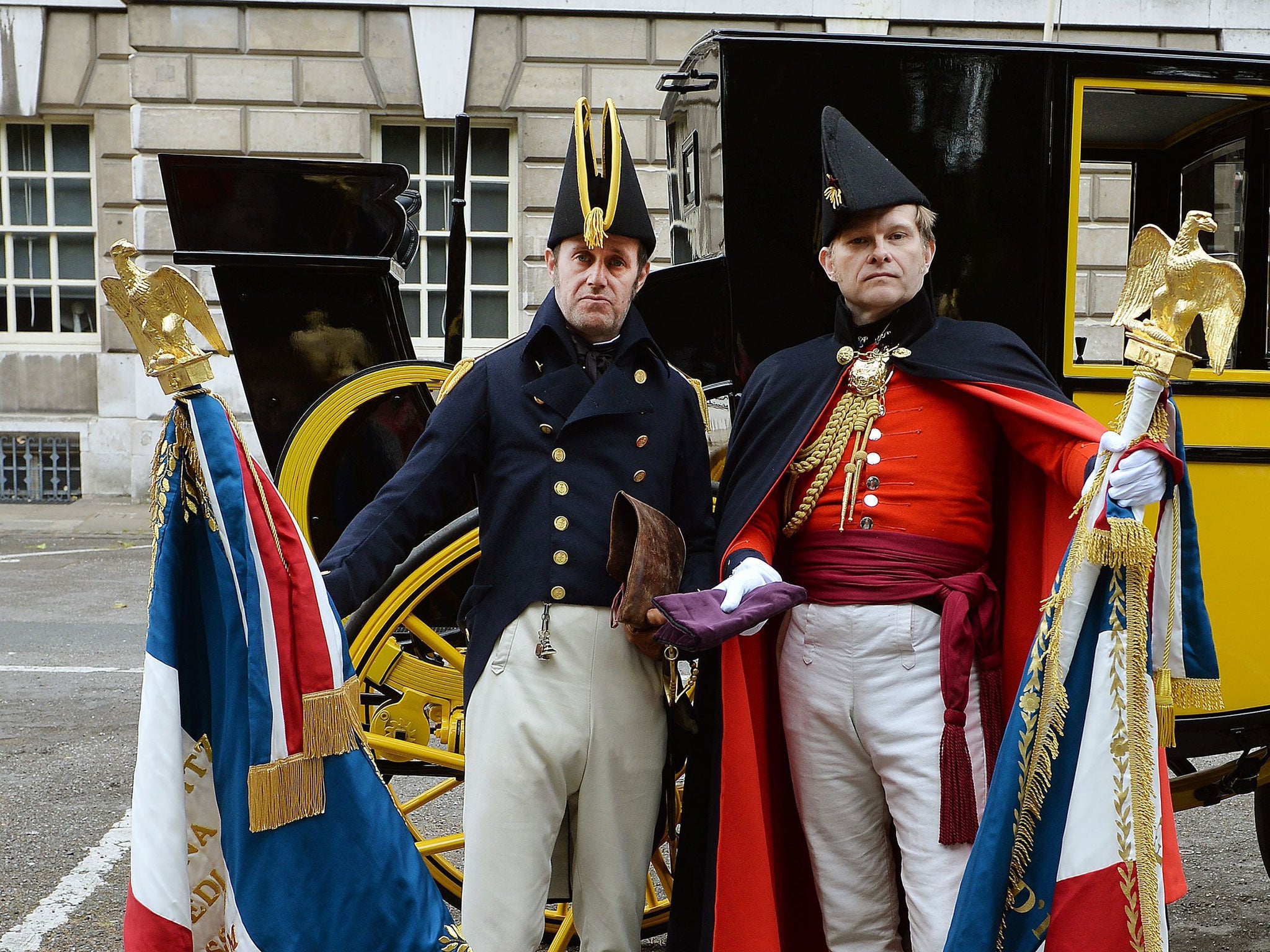Battle of Waterloo: 200th anniversary victory 'news' reaches London
The five-day anniversary commemorations of the battle ended with actors retracing the trip through London to deliver the news to the Prince Regent

He may have been defeated in the Battle of Waterloo on Saturday, but modern communications being what they are, news of Napoleon’s surrender in Belgium only reached London yesterday afternoon.
The five-day 200th anniversary commemorations of the historic battle, which saw 5,000 volunteers at the site to re-enact it on 20 June, ended on 21 June with actors retracing the trip through London to deliver the good news to the Prince Regent.
Carrying replicas of two captured Imperial Eagles and Standards of the French army, actors dressed as Major Henry Percy and Commander James White made the final leg of their journey across the capital in a horse-drawn carriage, before “Major Percy” laid the spoils at the feet of Princess Anne, who stood in for the Prince. Accompanied by military bands, the carriage then joined a parade down The Mall towards Buckingham Palace.
The defeat of the 93,000-strong French army by up to 125,000 British, German and Belgian-Dutch troops ended Napoleon’s ambitions for European domination. More than 60,000 are thought to have lost their lives during the 10-hour battle on 18 June in 1815.
After abdicating power, the French emperor gave himself up to the British off the west coast of France a few weeks after the battle and was placed in permanent exile on the remote, stony South Atlantic isle of St Helena.
He died six years later in 1821, in circumstances that are debated to this day.
Saturday’s re-enactment was one of the largest ever staged. A crowd of 60,000 watched as 5,000 enthusiasts dressed in authentic costumes recreated the sound and fury of the fray.
They were aided by 50 cannons, four metric tonnes of gunpowder and 170 cavalry.
“It gets people involved and they realise we are not just playing soldiers like little boys and running around with guns,” said Belgian Ron Van Dyck, 44, who was in charge of logistics for both camps of re-enactors.
Others, such as Jonathan Findlay, a former captain in the Royal Scots Dragoon Guards, were there to pay their respects to ancestors who fought 200 years ago.
After the battle, Capt Findlay’s great-great-grandfather James Wemyss, an officer from the 400 Scots Greys who charged at Waterloo, wrote to his mother: “Our regiment has suffered very severely. We have only about 26 men, including officers, remaining on the field.”
Join our commenting forum
Join thought-provoking conversations, follow other Independent readers and see their replies
Comments